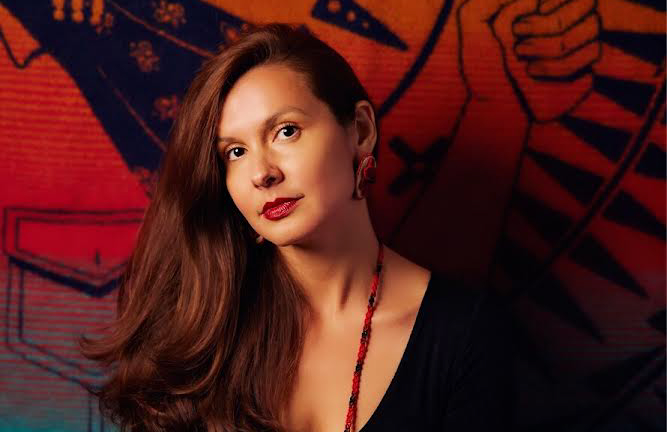Indigenous perspectives on climate action talk held during university sustainability planning

Five years after finishing her master’s degree, Melina Laboucan-Massimo was back at UVic, albeit virtually. The Indigenous governance program graduate gave a public lecture about Indigenous perspectives on climate action on Nov. 22, in the lead up to the release of UVic’s Climate and Sustainability Action Plan (CSAP).
In the talk, Laboucan-Massimo discussed her work with Indigenous communities that are adapting to the climate crisis. She says governments and institutions like UVic need to give time, space, and respect to Indigenous knowledge. Almost 70 people attended the talk over Zoom.
The lecture was sponsored by the Centre for Indigenous Research and Community-Led Engagement (CIRCLE), the Indigenous studies department, Indigenous governance program, and the CSAP leadership team. Laboucan-Massimo was invited by Indigenous studies associate professor Jeff Corntassel, with the hope that her work will help inform the development of UVic’s CSAP, which is slated for release next summer.
Laboucan-Massimo is Loubicon Cree from Little Buffalo, in northern Alberta. Though she had already been working on climate change issues and preventing oil extraction, she was motivated to focus on climate solutions when Little Buffalo suffered one of the largest oil spills in Alberta history in 2011.
“It came from a place of, honestly, despair and sadness and trauma,” Laboucan-Massimo said in an interview with the Martlet. “Seeing my family being poisoned, our eyes burning, all the things that you would think of when an oil spill happens so close to where your home is.”
She realized her family would continue living with the devastating effects of extractive industries and the climate crisis, and decided to focus on solutions.
“I felt like I needed to start building inspiration, hope, and also just moving the needle towards a just transition that people can take hope and inspiration from and put the matters back into their own hands,” she said.
Laboucan-Massimo’s focus on solutions took off. As part of her master’s research, Laboucan-Massimo led a project that built solar panels in her home community of Little Buffalo. The project involved training young people in the community to learn about and build the solar panels.
In 2015, she founded Sacred Earth Solar, which helps install solar panels in Indigenous communities for energy sovereignty and resistance efforts, and co-founded Indigenous Climate Action, which aims to decolonize climate policy and provide communities with resources.
She also filmed Power to the People, a documentary television show that showcases Indigenous communities working to develop climate solutions and resilience. In her talk, Laboucan-Massimo showed a clip of an episode of the show filmed at Kanaka Bar, near Lytton, B.C. The community has built solar panels and worked to monitor changes in creek water levels.
“Shooting Power to the People was such a breath of fresh air … being able to see and meet so many other Indigenous leaders that were doing solutions-based work for the community,” she said.
Though she believes solar is a useful tool while we transition our ways of life, Laboucan-Massimo doesn’t think that technology is the solution to the climate crisis. Net-zero technologies, such as carbon capture and removal from the atmosphere, haven’t been proven, she says.
Indigenous perspectives on climate resilience, says Laboucan-Massimo, take a much longer view than that of current decision-makers. Many communities look at the next 500 years, not the next four like a politician running for re-election.
“We need a critical paradigm shift with how humans and species are interacting with Mother Earth,” she said. “Indigenous peoples have always had an intimate and reciprocal relationship with Mother Earth … many Indigenous peoples that I’ve talked to around the world see that all life is sacred.”
In her talk, Laboucan-Massimo spoke about how institutions should include Indigenous knowledge-holders in expert groups and should adjust the timeframe of consultation to accommodate Indigenous people and Elders. She also says universities should support Indigenous resistance efforts against extractivism, like the one taking place on Wet’suwet’en territory currently.
If Laboucan-Massimo were in charge of UVic’s climate planning, she says she’d centre Indigenous communities throughout the entire process.
“Not that it’s just knowledge to integrate, but it’s also integrating the people and the communities that this knowledge comes from, so that there’s not a co-optation or an extraction of the knowledge,” she said.






